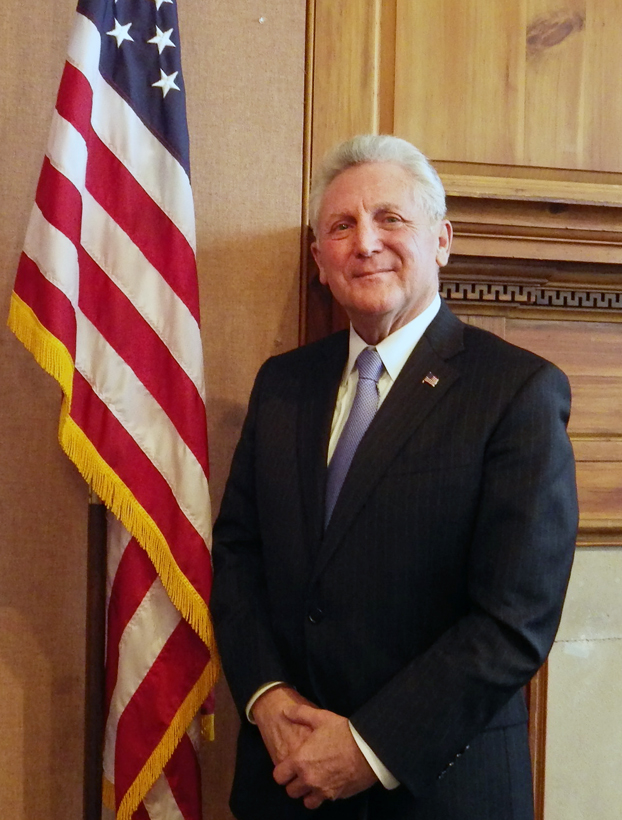
HARTFORD – As part of his 2025 Healthcare Cabinet Report, state Comptroller Sean Scanlon announced he supports increasing Medicaid reimbursement rates, something hospitals and other healthcare facilities need.
In a statement on Jan. 22 during his healthcare summit, Scanlon listed legislative proposals and actions that would also strengthen fertility care coverage laws, provide funding to incentivize and support care coordination, implement a publicly available insurance plan scorecard for mental health parity, and establish scholarships for students pursuing healthcare careers.
“The 2025 Healthcare Cabinet Report is more than just policy ideas; it’s a roadmap to meaningful change,” Scanlon said. “This year’s report builds on our progress to address Connecticut’s biggest healthcare challenges — focusing on affordability, access, and workforce development. I look forward to working with the Legislature and cabinet members to bring these proposals to fruition.”
In total, the program is estimated to cost $8.5 billion in FY 2025, with $3.5 billion funded by the state. These funds are used primarily to reimburse healthcare providers for the cost of care. But the state’s Medicaid program does not reimburse providers for the full cost of care.
Healthcare facilities, including hospitals, nursing homes, and nonprofits aiding the poor are losing money due to a very low Medicaid reimbursement rate. According to data from the state of Connecticut, in 2021, Medicaid paid 71.62% of nursing home costs in Connecticut and in 2022 hospitals were paid 62 cents on the dollar for treating Medicaid patients.
The state Medicaid program connects more than 1.2 million lower-income residents with critical healthcare services including primary care, behavioral and mental health services, and acute hospital care. The cost of the program is shared between the state and the federal government.
Some of the legislative priorities supported by the comptroller’s healthcare cabinet include:
- Creating an eConsult policy for Connecticut Medicaid: Using 2024’s bill HB 5459 as a template during the last legislative session, the subcommittee recommended the adoption of eConsults to better address Medicaid reimbursement. An electronic consultation is a medical provider-to-provider conversation typically conducted electronically through an internet-based secure messaging platform.
- Adjusting Medicaid policy for providers: Modify reimbursement strategies under Medicaid for rural geographies to ensure adequate cost coverage for critical services such as primary care, pediatrics, obstetrics, and behavioral health services.
- Recommend additional support for rural hospitals through increased reimbursements for Medicaid patients and a monthly facility fee to address low volume and variations in demand.
- Close the gap between Medicaid reimbursements and the cost of care at federally qualified health centers.
- Explore alternative revenue streams, including reimbursement for community health workers to perform social determinants of health risk assessments.
- Preserve the 340B program, which supports patients and patient programs, despite current risks due to pharmaceutical company restrictions.
- Increase Medicaid reimbursement for ambulance responses in northeastern and northwestern Connecticut.





















